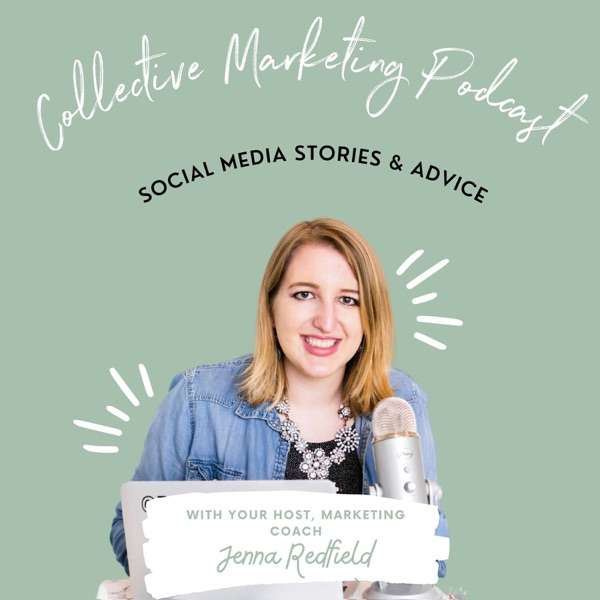Trigger warning: This episode may include discussions about suicide, mental illness, substance abuse and self-harm. If these topics are sensitive to you, proceed with caution. It may also contain strong language and is intended for an adult audience.
If you are feeling suicidal, thinking about hurting yourself, or are concerned that someone you know may be in danger of hurting himself or herself, call the National Suicide Prevention Lifeline: 988.
When people call, text, or chat 988, they will be connected to trained counselors that are part of the existing National Suicide Prevention Lifeline network. These trained counselors will listen, understand how their problems are affecting them, provide support, and connect them to resources if necessary.
The current Lifeline phone number (1-800-273-8255) will always remain available to people in emotional distress or suicidal crisis, even after 988 is launched nationally.
Veterans can now dial 988 and press 1 to reach the Veteran Crisis Line.
Suicide warning signs can be found at the American Foundation for Suicide Prevention website (Afsp.org).
Please be sure to share this podcast with anyone who needs to hear it right now. Thank you for listening.
You are listening to’Touched by Suicide’, a special podcast series inspired by the memory of Steve Tarpinian, a prolific figure in the sport of triathlon who positively impacted so many. Steve died by suicide in 2015.
Our goals are to raise awareness about and decrease the stigma surrounding suicide and mental health issues. And to let you know that you are not alone.
This series was sparked by Steve Tarpinian's surviving partner, Jean Mellano, is hosted by Nicole DeBoom and narrated by former professional triathlete, coach & event announcer, Michael Lovato.
Following is the Prologue transcription as narrated by Michael.
Due to the stigma that still exists with suicide, some suicide loss survivors feel ashamed talking about their loved one’s cause of death. They will not speak openly about suicide or the mental health issues leading up to suicide. When one takes their own life, there is a ripple effect that resonates to the clinicians, the co-workers, friends and family. Each week we will release an episode that offers a different perspective on suicide.
We believe that people suffering from mental illness are not necessarily defined by the disease. Their lives can be productive and filled with joy, laughter, and love. We hope to inspire conversation that will contribute to removing the stigma associated with mental illness and suicide. By doing this, we hope to help those who are struggling to find resources that may prevent them from moving forward with suicide. We also hope that if one is a suicide loss survivor, they will benefit from realizing they are not alone and they should not blame themselves for not doing more.
Suicide is much more prevalent than one would think. According the Center for Disease Control and Prevention (CDC) over 47,000 Americans died by suicide in 2019.
No one is immune. The CDC believes that suicide has become a large and growing public health problem.
Attitudes about suicide are not likely to change for the better until we can speak as freely about it as we freely speak of cancer now. At one time cancer was stigmatized. Only when we can speak openly about suicide and mental health issues without shame or embarrassment will attitudes about suicide change for the better. The personal perspectives you will hear from our guests in the Touched By Suicide Podcast series, along with what I’m about to share, support the fact that change is happening, that suicide stigma has lessened since Steve passed away in 2015.
- The power of celebrity has led to more open discussions about mental health and sucide. The families of those who took their own lives; Kate Spade, Anthony Bourdain, Chris Cornell and Chester Bennington were not silent about the cause of their loved one’s death.
- Many celebrities such as Carrie Fischer, Lady GaGa, Prince William, Demi Lovato and Michael Phelps have gone public and speak openly about their mental health struggles.
- Suicide awareness has hit the mainstream. In 2017, Logic, a popular young singer, released a powerful suicide prevention anthem. The title of the song is the toll-free suicide prevention hot line: ‘1-800-273-8255'
Even though things have improved in the last several years since Steve passed, the stigma of suicide still exists. We have a long way to go.
When we lose people to suicide, their survivors often keep silent which further stigmatizes suicide. Today I have the honor of sharing the story of Steve Tarpinian. By celebrating his life and sharing views before and after his suicide, it is clear that awareness about suicide is changing. This is important because as one of our guests, Dr. Andreski, shares, “For most causes, awareness precedes progress.”.
Steve Tarpinian died by suicide on March 15th, 2015, the day after leaving an inpatient mental health facility. He was a beloved coach, swimmer, entrepreneur, friend and companion. Steve's vision established the landscape for triathlon on Long Island. However, his true legacy is the lives that he positively impacted while on his journey.
In his 20’s, Steve’s depressive episodes occurred maybe once or twice a year and lasted a day or so. As time went on, these episodes happened more frequently with longer durations. Steve would drive himself at a frenetic pace. He eventually became physically, emotionally, and mentally exhausted.
Over the years, Steve won many battles in his private war. He appeared to most as a very happy, trouble-free person who had it all figured out. Steve had a very successful business, was a great athlete and a great coach, and he was loved by so many. He was very good at hiding his inner turmoil.
Steve started slipping away in 2013 when he was in his 50s. His depressive episodes were occurring more frequently and were becoming longer in duration. He was a good actor since no one knew he was suffering so much that he would take his own life.
In his final months, his mind was consumed by indecisiveness, obsessiveness, and regrets about not following certain paths in his life. Steve lost interest in the things he always seemed so passionate about. In his final few months, Steve frequently became so indecisive that he could no longer effectively live his life. He lost all hope for things to change for the better. Steve finally made the irreversible decision to leave behind his pain. He completed suicide on his second attempt to end his life.
Steve’s legacy is not that he died by suicide. His legacy is one of kindness and compassion to others in spite of his own personal struggles. He was someone who impacted so many lives in a powerful and positive way. He gave so much to so many with no expectation of a return. Steve was not just a coach of sport, he was a coach of life. He was a gift to all of us and that gift was only ours to borrow.
When someone dies by suicide, the loss survivors are left with many unanswered questions. They are often wracked with guilt and struggle to openly share about their loved one’s suicide, largely due to the stigma surrounding it.
We need to be more open in speaking about suicide, even though initially, it may be too uncomfortable to talk about. Silence perpetuates suicide stigma.
In Dr. Andreski’s interview, he indicated that not all people who are suicidal can be helped, but many can be. Freely speaking about suicide and mental health issues without shame or embarrassment is important to help to reduce the stigma.
Touched by Suicide features perspectives from nine people.
- Ruth Tepler-Roth is a mom who lost her son Jonathan.
- Adam Sud attempted suicide and survived. He shares his story to help others who are facing the turmoil he faced.
- Doctor Andreski [ann DRESS key] is a psychiatrist who has been working with suicidal patients and suicide loss survivors for over 45 years.
- Michael Stewart is a son who lost both his father figure, Steve, and later his father, Mike to suicide.
- Rip Esselstyn is a pro athlete friend and colleague of Steve’s who shares insights from the athlete mindset
- Deb Savarese [SAV uh reese] is an athlete that Steve coached who will forever be impacted by him.
- Mike Barone [buh RONE] is an employee, someone who knew Steve on a professional and friendship level.
- Jean Mellano is the surviving partner of Steve, a man she still calls the love of her life. Jean is also the reason this series exists.
- Kevin Hines attempted suicide at 17 years old by jumping off the Golden Gate Bridge. He knew the second he left the bridge that he didn't want to die. He miraculously survived and today he dedicates his life to helping others who struggle with mental health issues and suicidal thoughts.
At times, we may feel helpless and not know what to say or do but there ARE some things that can be done to help those who are struggling.
Many people who contemplate suicide engage in behaviors that we can flag, if we know what to look for. These warning signs may help save lives. In every conversation, the power of hindsight is clear. Everyone involved in this project could identify at least one incident that would be considered a flag. Here are a few.
- Contacting friends just to say ‘hi’,when it is not something they normally do. Typically this may happen when the person has made the decision to take their own life. They could be trying “to clean up their side of the fence” if there was a misunderstanding in their relationship or possibly just to say goodbye. Several of our guests received a phone call from Steve in the month or two before his death even though they had no contact with Steve for months.
- Losing interest in the things they always loved to do
- Pulling back from their social circles
- Making a comment like their friends and family would be better off without them
- And of course, previously attempting to complete suicide.
More warning signs can be found at the American Foundation for Suicide Prevention website (Afsp.org)
Too many are still being lost to suicide; it is so much more prevalent than people realize. Because of its stigma, no one wants to talk about it. Although things are improving with respect to awareness surrounding suicide and mental health issues, ignorance about these topics abound. Comments like “suicide is a permanent solution to a temporary problem” and “suicide is a selfish act” have no place in our society and only further contribute to the stigma. Anyone who makes these comments has no idea of the mental anguish one who takes their own life may be suffering; that it is so painful, they fear living more than they fear dying.
When someone dies by suicide, it is common for the survivors to remain silent about the cause of the death of their loved one. When this happens, it perpetuates the stigma around suicide which makes it harder for people to reach out when they need help. Steve Tarpinian died by suicide. He also left a beautiful legacy of love and support to many people. By sharing his story and the stories of others touched by suicide, it is our goal to educate and to help people who are struggling reach out for the help they need before it is too late.
If you have a loved one who is struggling, reach out to them. A friend of Steve’s, Peter Ventura, said that when he learned of Steve’s struggles, he sought help from a friend who was knowledgeable about how to help a person with suicidal feelings. Peter was given the following advice: “You just have to be intrusive. Don’t just walk through the door. Kick the door down and be there for your friend.” As one of our guests says, “You do not have to have answers. Tell them you love them and that you do not want them to feel alone. You are there for them. Don’t try to “fix” them.”
I will wrap up with a huge thank you to Jean Mellano for making this series happen. And thank you to Steve Tarpinian for lighting up the world with your smile and changing so many lives for the better. We wish you were still here with us today.
If you or someone you know is displaying suicide warning signs, please call the suicide prevention hotline at 800 273 8255. Thank you for listening. Please share this podcast - you never know who may need to hear it right now.
Medical Advisory:
The Run This World Podcast & the Touched by Suicide series does not provide crisis, counseling or direct services. The information and resources contained on this site are not intended to diagnose or treat any condition. Please consult a mental health professional before making changes to your treatment plan.
Music credit: "Forgiveness" by Sensho from Upbeatt.io

 Our TOPPODCAST Picks
Our TOPPODCAST Picks  Stay Connected
Stay Connected



![[국진말] 대한민국 경제, 국가가 진실을 말할 수 없는 이유](https://toppodcast.com/wp-content/uploads/2021/01/5107616-600x600bb.jpg)



